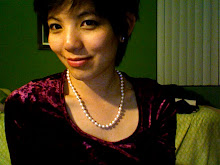The title (of this post) is way exaggerated. He isn't broken! Broken Embraces literally embraces all the qualities of a Pedro Almodovar story and illustrates the amazing cinematography; not to mention the inclusion of Penelope Cruz. But where it lacks is the thoughtful and provoking quality that other Almodovar films leave me with. The disturbed yet bittersweet ending that perturbs me.
Perhaps I had too high of hopes for this film. I thought Volver was pretty great, but my favorite is Bad Education. Talk to Her and All About My Mother stay in my fond memories of Almodovar, but I would have to say this one, although I appreciated, will be on the bottom of my Almodovar spectrum.
The movie begins with a man and a voice over. He explains that he was a man of two personas. One was Mateo, and in present day, as a writer he is now known as Harry Caine (Lluis Homar). We know we are in present day, because soon we have text that brings us to another character set in 1994 Spain, Lena (Cruz). The story unfolds with pieces and fragments exposed to you until the ultimate climax occurs, as in most Pedro Almodovar films. The brilliance of Almodovar is the creativity in the story and the unfolding of the story itself is the spectacle, to keep you on the edge of your seat. In this movie, the unfolding of the story is slow and plays out like a soap opera. The story rings familiar, and I kept waiting for the climax. Even though his turning points are not always so with-standing in films, I felt that this movie buried itself as it went on, and so that the end was stagnant and lazy. The structure and pacing of the film made it difficult to gauge the screenplay's sign posts. I can see the qualities of Almodovar's films: the reveal/confession (medium shot of a dining table, moving back and forth with not that much emotion involved), the drama, etc. And I grabbed onto those factors as I went on with the movie, so it kept me interested. Like I said, I was just waiting for the grandiose ending. In a way, I felt that Almodovar was more embracing the homage to filmmaking as he filmed this movie, and left the audience to embrace an empty story.
I felt the acting by Penelope Cruz was great as usual. Her scenes where she tries on different wig just explains her place in Pedro Almodovar's movies. She's a doll to dress up and play with. I thought her display of her character evoked the most emotion and attachment for the viewer. Lluis Homar did fine in his role, but did not really display the emotions I expected him to or that the words dictated to him. I feel the other actors that played Diego and Judit did great with their characters, and the screen resonated with their presence.
The best best best thing about this movie was the cinematography or the (I forgot the term for it) where you color over the film like in Amelie. However, I don't think that was it, and in that case I am not sure what to call it. I just loved how the images popped off the screen and made me feel as if I was watching a moving painting. The colors were so bright like modern art. I loved the shots and the mise en scene. There were some beautiful moments in this movie that I will embrace (yeah I'm beating in that word in this "review"), and the way the two past and present things collided I admired. Overall, how the script was structured I liked, but the story itself was not that creative as I would have hoped. The inclusion of Diego I found to be fascinating as a screenplay tool. I may give it a second viewing.
My thoughts: 3 out of 4
Subscribe to:
Post Comments (Atom)

No comments:
Post a Comment